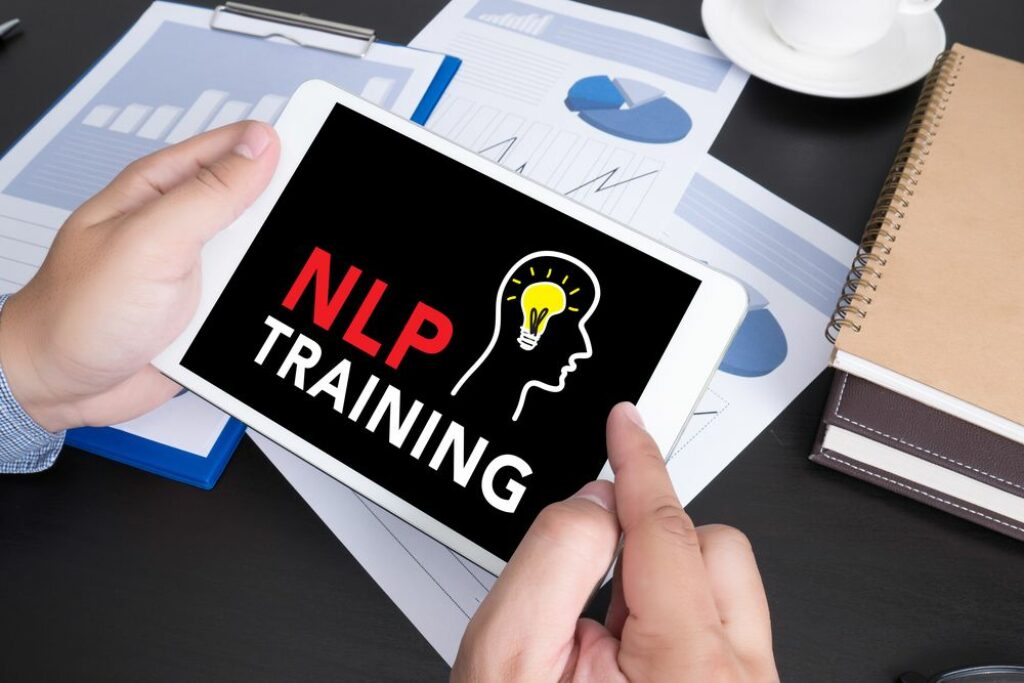
Natural Language Processing Courses
It has long been a wish for some people to be able to talk to the animals, as expressed in a famous song. Nowadays however, the wish and more a need, is to be able to talk to the computers.
Related Topics (Sponsored Ads):
Natural Language Processing (NLP) is a subfield of artificial intelligence (AI) that focuses on the interaction between computers and humans through natural language. The primary goal of NLP is to enable machines to understand, interpret, and respond to human language in a way that is both meaningful and useful. This involves a variety of tasks, including language translation, sentiment analysis, speech recognition, and text summarization. By leveraging computational linguistics and machine learning techniques, NLP aims to bridge the gap between human communication and computer understanding.

Overview
The importance of NLP has surged in recent years, driven by the exponential growth of data generated through digital communication. Industries such as healthcare, finance, marketing, and customer service are increasingly relying on NLP technologies to enhance their operations. For instance, healthcare providers utilize NLP to analyze patient records and extract relevant information, while businesses employ chatbots powered by NLP to improve customer engagement.
As the demand for automated language processing continues to rise, the relevance of NLP in various fields becomes more pronounced, making it a critical area of study for aspiring data scientists, software engineers, and AI researchers. The following are five of the best NLP courses available.
Natural Language Processing for Everyone by University of Michigan
This course, available on Coursera, is designed for beginners and is delivered online. It typically lasts four weeks, with a commitment of four to six hours per week. The curriculum focuses on the basics of NLP, including text processing, classification, and sentiment analysis. The course’s unique aspect is its emphasis on practical applications and case studies, making it relatable for learners from various backgrounds. However, its introductory nature may not satisfy those seeking advanced knowledge in NLP.
Introduction to Natural Language Processing by Microsoft
Offered on edX, this beginner-friendly course is designed to introduce learners to the fundamentals of NLP. It is delivered online and spans four weeks, requiring about three to five hours of study per week. The curriculum covers essential topics such as text preprocessing, sentiment analysis, and language modeling. A key feature of this course is its accessibility, making it suitable for individuals with no prior experience in programming or NLP. While the course provides a solid foundation, some learners may find it lacks depth in more advanced topics.
Natural Language Processing Specialization by deeplearning.ai
Offered on Coursera, this specialization consists of five courses designed to provide a comprehensive understanding of NLP. The course format is online and self-paced, allowing learners to progress at their own speed. It typically takes about three months to complete, assuming a commitment of approximately five hours per week. The specialization covers key topics such as word embeddings, sequence models, and attention mechanisms, with a strong emphasis on practical applications using TensorFlow.
Unique features include hands-on projects that allow students to apply their knowledge in real-world scenarios. The course is well-suited for intermediate learners who have a basic understanding of machine learning. Pros include its structured approach and the reputation of the instructor, Andrew Ng. However, some may find the pace challenging if they lack prior experience in deep learning.
Natural Language Processing with Python by University of Michigan
This course is available on Coursera and is designed for beginners. It is delivered online and typically spans four weeks, requiring about four to six hours of study per week. The curriculum focuses on using Python for NLP tasks, covering topics such as text processing, sentiment analysis, and machine translation. A standout feature of this course is its practical approach, with numerous coding exercises and projects. The course is ideal for those new to programming and NLP. While the course is accessible, some learners may find the lack of advanced topics a limitation if they seek deeper insights into the field.
Applied Natural Language Processing by University of California, Berkeley
This course is offered on edX and is designed for intermediate learners. It is delivered online and spans six weeks, with an expected commitment of five to ten hours per week. The curriculum emphasizes practical applications of NLP, including text classification, information retrieval, and conversational agents.
A notable feature of this course is its focus on real-world applications, making it highly relevant for professionals looking to apply NLP in their careers. However, the course may not delve deeply into theoretical aspects, which could be a drawback for those seeking a more comprehensive understanding of this subject area.
Tips for Choosing an NLP Course
When selecting an NLP course, several factors should be considered to ensure it aligns with your learning objectives and career goals. First, evaluate your current knowledge and skills. Beginners may benefit from introductory courses, while those with a background in machine learning might prefer advanced offerings.
Next, consider the course structure and format. Online courses offer flexibility, while in-person classes may provide more direct interaction with instructors. Assess the duration and workload to ensure it fits your schedule. Instructor qualifications are also crucial; look for courses taught by experienced professionals or academics in the field. Finally, consider the cost of the course and whether it fits within your budget.
To evaluate course quality, read reviews and testimonials from previous students. Look for courses that offer hands-on projects and practical applications, as these can significantly enhance your learning experience. By carefully considering these factors, you can select an NLP course that best meets your needs and aspirations in this rapidly evolving field.




